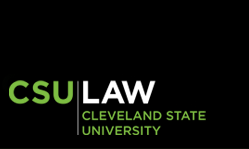Volume
71
Abstract
In 2020, Congress passed the Copyright Alternative in Small-Claims Enforcement Act, which established a small claims court system within the United States Copyright Office, called the Copyright Claims Board. This new board hears cases of copyright violations involving damages of $30,000 or less. President Donald Trump signed the bill into law on December 27, 2020, and the board officially began hearing claims in June 2022. This was meant to benefit smaller creators who do not have the means to pursue their copyright claims in costly federal court. While small or independent creators should indeed have access to a means of adjudicating their claims of copyright infringement in a way using less money, time, and resources than the costly federal litigation process, the CASE Act and corresponding Copyright Claims Board fails to accomplish that goal. This Note argues that that certain changes should be made to the current framework of the Copyright Claims Board to make it fairer for independent creators to enforce copyright protection on their work. First, this Note examines the background of the traditional federal litigation process of copyright claims and explains why something like the CCB is necessary. Next, this Note discusses the CCB and the points that are likely to help bring justice to smaller creators. After this, this Note considers the problems and pitfalls of the CCB and details the ways that it will likely hurt independent creators as it currently stands. Finally, this Note proposes changes that legislators considering amendments to the CASE Act and the CCB can incorporate to make the small claims tribunal process fairer.
Recommended Citation
Megan Grantham,
Problems in the Copyright Industry: Making the Case for a Corrected CASE Act,
71 Clev. St. L. Rev. Et Cetera
27
(2023)
available at https://engagedscholarship.csuohio.edu/etcetera/vol71/iss1/2
